In the dynamic world of transportation, the backbone of every semi-trailer lies in its axle configuration. Understanding the different types of trailer axles is crucial for optimizing performance, enhancing durability, and ensuring safety on the roads. At CarMax Vehicle, we specialize in manufacturing high-quality trailer axles tailored to meet diverse transportation needs. This guide delves deep into the various types of trailer axles, their unique features, applications, and maintenance considerations, empowering you to make informed decisions for your fleet.
Table of Contents
- Understanding Trailer Axles
- Types of Trailer Axles
- Comparative Analysis of Trailer Axle Types
- Choosing the Right Trailer Axle for Your Needs
- Maintenance and Longevity
- Innovations in Trailer Axle Design
- Why Choose CarMax Vehicle for Your Trailer Axles
- Frequently Asked Questions
Understanding Trailer Axles
Trailer axles are pivotal components that bear the weight of the trailer and its load, facilitating smooth motion and stability. They connect the wheels to the trailer frame, ensuring proper alignment and distribution of weight. The choice of axle type impacts load capacity, maneuverability, and overall efficiency of the trailer. At CarMax Vehicle, our commitment to excellence ensures that our trailer axles meet stringent quality standards, catering to various transportation requirements.
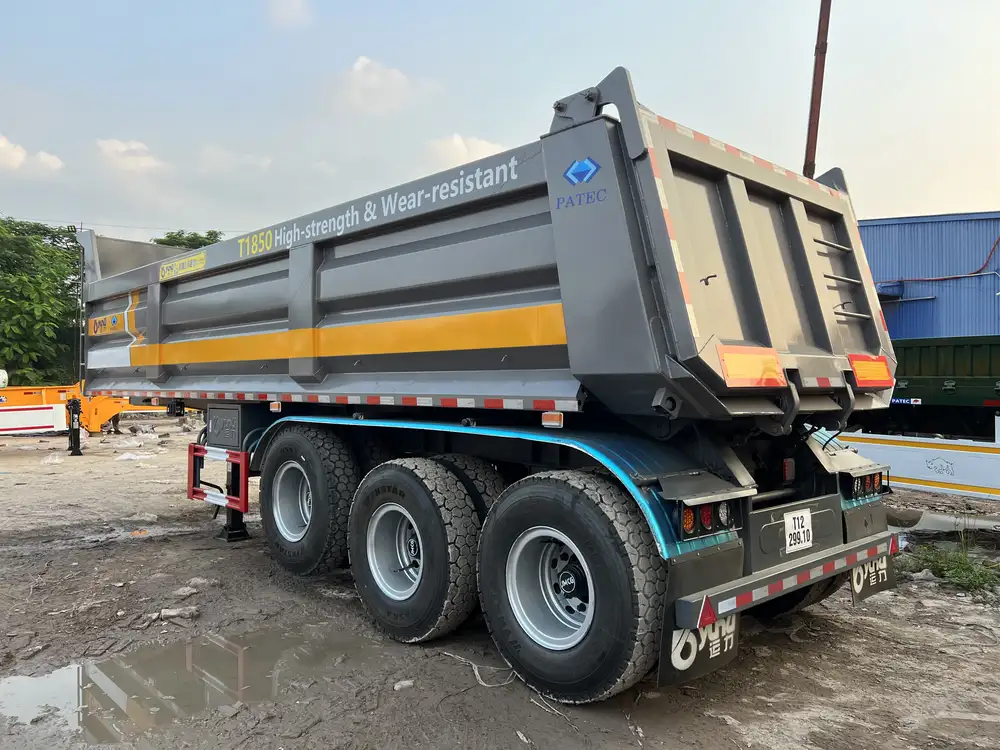
Types of Trailer Axles
Exploring the different types of trailer axles unveils a spectrum of designs, each tailored to specific operational needs. Here’s an in-depth look at the most prevalent axle types in the industry.
Leaf Spring Axles
Overview: Leaf spring axles are among the oldest and most widely used types in the trailer industry. They consist of multiple layers of metal (leaves) stacked together to form a curved spring.
Features:
- Simplicity: Easy to install and maintain.
- Cost-Effective: Generally cheaper than other axle types.
- Durability: Capable of handling heavy loads with minimal maintenance.
Applications:
- Freight Trailers: Ideal for long-haul transportation due to their robust construction.
- Utility Trailers: Suitable for carrying equipment and machinery.
Advantages:
- Proven reliability over decades.
- Superior load distribution capabilities.
- Compatible with a wide range of trailer designs.
Disadvantages:
- Can be less effective in absorbing shocks compared to more modern suspensions.
- Requires periodic inspection to prevent sagging and wear.
Torsion Axles
Overview: Torsion axles utilize the torsional stress in rubber elements to provide suspension, eliminating the need for traditional springs.
Features:
- Low Maintenance: Fewer moving parts reduce the need for regular upkeep.
- Smooth Ride: Enhanced ride quality due to superior shock absorption.
- Space-Efficient: Compact design frees up space within the trailer.
Applications:
- Lightweight Trailers: Perfect for smaller loads and frequent stops.
- Recreational Trailers: Common in travel trailers and RVs for a comfortable ride.
Advantages:
- Improved durability with rubber components resisting corrosion.
- Consistent performance in varying weather conditions.
- Enhanced fuel efficiency due to reduced mechanical drag.
Disadvantages:
- Higher initial cost compared to leaf spring axles.
- Limited load capacity relative to leaf springs.

Drop Axles
Overview: Drop axles are designed to lower the trailer’s chassis, providing additional clearance between the frame and the road.
Features:
- Height Reduction: Lowers the trailer, reducing the center of gravity.
- Improved Aerodynamics: Enhances fuel efficiency by streamlining airflow.
- Enhanced Stability: Lower center of gravity minimizes sway and improves handling.
Applications:
- Double Trailers: Common in tandem setups to optimize trailer height.
- Heavy Haul Trailers: Ideal for transporting oversized or heavy loads requiring extra clearance.
Advantages:
- Enhanced maneuverability in sharp turns.
- Reduced risk of bottoming out on uneven terrain.
- Improved aesthetic appeal for high-end trailers.
Disadvantages:
- May require specialized mounting and installation.
- Limited compatibility with certain trailer frames.
J-Tube Axles
Overview: J-tube axles use a unique design where the axle housing is partially enclosed in a J-shaped tube, providing additional support and flexibility.
Features:
- Flexibility: Accommodates slight changes in load distribution.
- Strength: Reinforced housing enhances load-bearing capacity.
- Versatility: Suitable for a variety of trailer types and configurations.
Applications:
- Enclosed Trailers: Ideal for transporting sensitive or valuable goods.
- Livestock Trailers: Provides stability and safety for animal transportation.
Advantages:
- High load capacity with reinforced structure.
- Enhanced durability against impacts and rough terrain.
- Flexibility in load distribution reduces stress on the trailer frame.
Disadvantages:
- More complex design may increase maintenance requirements.
- Higher production costs compared to standard axle types.
Suspension Axles
Overview: Suspension axles integrate advanced suspension systems to provide superior ride quality and load management.
Features:
- Advanced Suspension: Incorporates air or hydraulic systems for adjustable ride height and damping.
- Enhanced Control: Improved handling and stability under various load conditions.
- Customizability: Adjustable settings to cater to specific transportation needs.
Applications:
- Luxury Trailers: Ensures a smooth and comfortable ride for high-end applications.
- Specialized Freight Trailers: Suitable for transporting delicate or high-value goods requiring extra care.
Advantages:
- Superior ride quality and load distribution.
- Enhanced safety features reducing trailer sway and jackknifing.
- Adaptability to different terrains and load weights.
Disadvantages:
- Significantly higher cost and complexity.
- Requires specialized knowledge for maintenance and repairs.
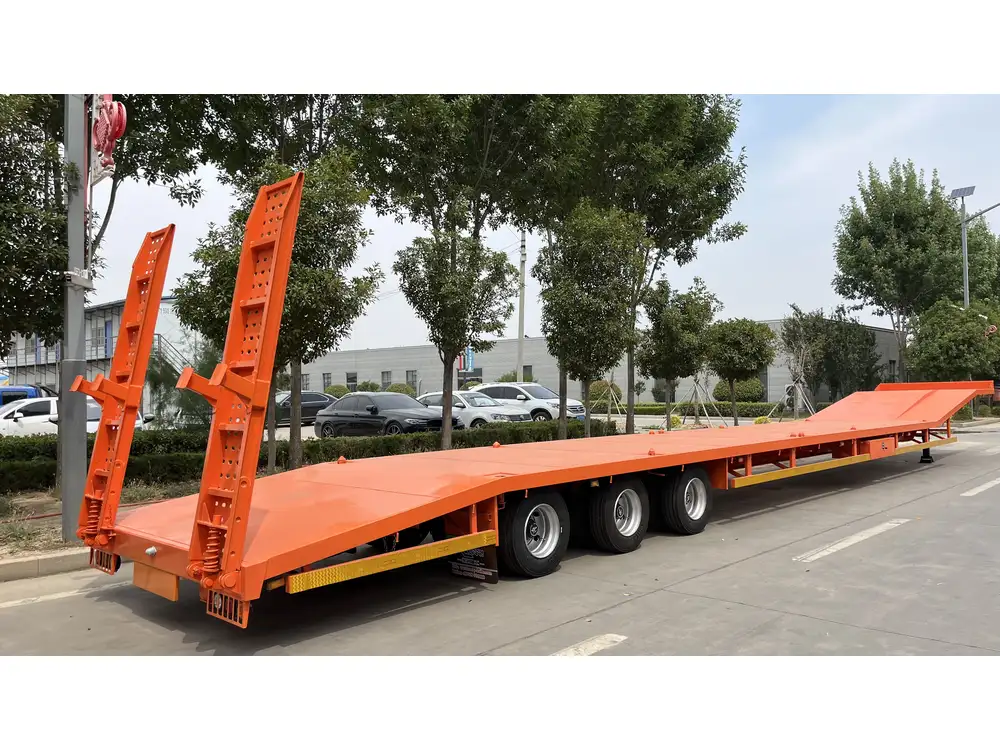
Comparative Analysis of Trailer Axle Types
| Axle Type | Load Capacity | Maintenance | Ride Quality | Cost | Common Applications |
|---|---|---|---|---|---|
| Leaf Spring | High | Moderate | Basic | Low | Freight, Utility Trailers |
| Torsion | Medium | Low | Smooth | Medium | Lightweight, Recreational |
| Drop | Medium-High | Moderate | Improved | Medium-High | Double, Heavy Haul Trailers |
| J-Tube | High | High | Good | High | Enclosed, Livestock Trailers |
| Suspension | Variable | High | Superior | Very High | Luxury, Specialized Freight |
This table highlights the key differences among axle types, assisting in selecting the optimal configuration based on load requirements, maintenance capabilities, and budget constraints.
Choosing the Right Trailer Axle for Your Needs
Selecting the appropriate trailer axle is a multifaceted decision influenced by various factors:
Load Requirements
Assess the weight and distribution of your typical loads. High-capacity loads necessitate robust axles like leaf spring or J-tube axles, whereas lighter loads might be efficiently managed with torsion or suspension axles.
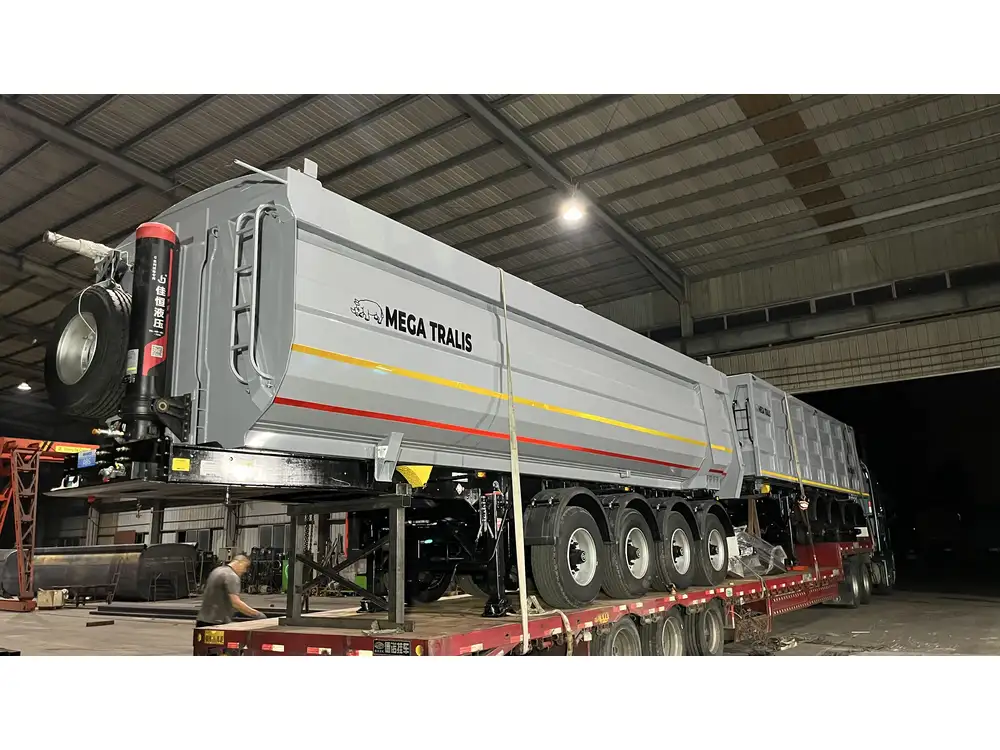
Terrain and Usage
Consider the terrains your trailer will navigate. Suspension axles offer superior performance on uneven terrains, while drop axles enhance stability on highways.
Maintenance and Durability
Evaluate the maintenance resources available. Leaf spring axles are cost-effective and straightforward to maintain, whereas torsion and suspension axles require specialized upkeep.
Budget Constraints
Balance initial investments against long-term benefits. While premium axles like suspension systems offer enhanced performance, leaf spring axles provide a budget-friendly solution without compromising durability.

Customization Needs
If your operations demand specific features like adjustable ride height or enhanced load flexibility, suspension axles provide the necessary customization.
At CarMax Vehicle, we offer a range of axle types to align with your specific transportation needs, ensuring optimal performance and longevity.
Maintenance and Longevity
Proper maintenance is pivotal in extending the lifespan of trailer axles and ensuring consistent performance. Here are essential tips for maintaining different axle types:
Leaf Spring Axles
- Regular Inspection: Check for cracks, sagging, or corrosion in the leaf springs.
- Lubrication: Ensure that all moving parts are adequately lubricated to prevent rust and wear.
- Alignment Checks: Maintain proper alignment to distribute loads evenly and prevent undue stress.
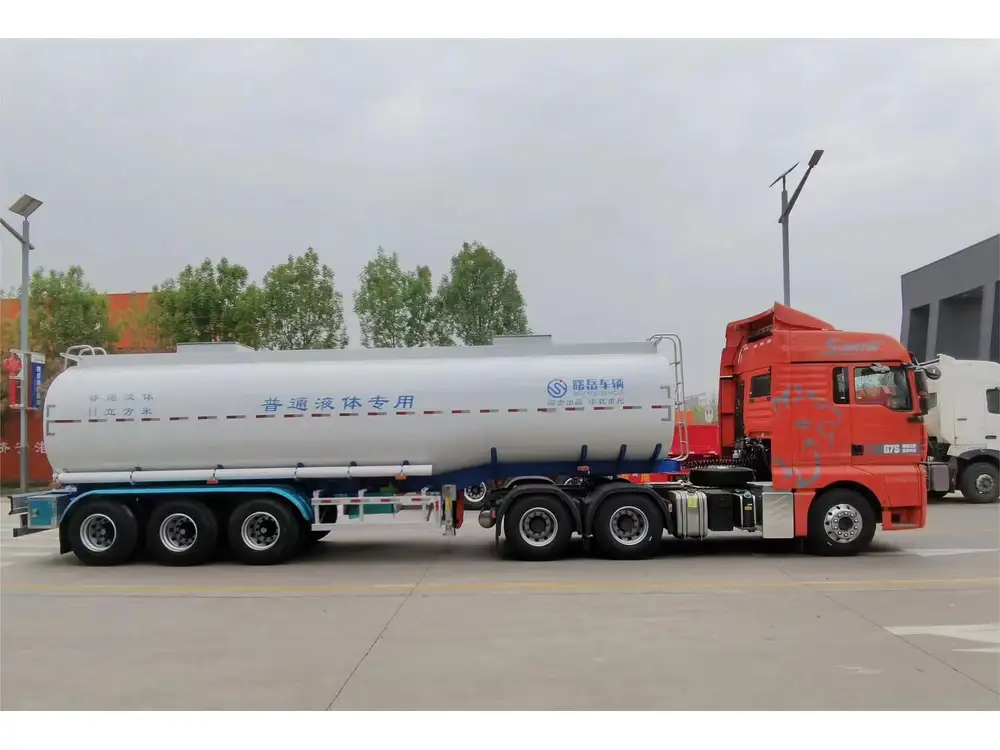
Torsion Axles
- Rubber Condition: Inspect rubber components for signs of wear, cracks, or degradation.
- Tightness: Ensure that all bolts and connections remain tight to prevent wobbling.
- Load Capacity: Avoid overloading to prevent excessive strain on the torsion elements.
Drop Axles
- Mounting Points: Regularly inspect the mounting points for signs of stress or damage.
- Height Verification: Ensure that the drop axle maintains the desired height without sagging.
- Structural Integrity: Check for any deformities or structural weaknesses in the axle housing.
J-Tube Axles
- Housing Inspection: Look for cracks or damage in the J-tube housing that could compromise strength.
- Flexibility Assessment: Ensure that the axle retains its flexibility without excessive bending.
- Secure Fastenings: Verify that all fastenings and connections remain secure.

Suspension Axles
- System Check: Regularly test air or hydraulic suspension components for leaks or malfunctions.
- Adjustment Settings: Ensure that adjustable settings are calibrated correctly for optimal performance.
- Component Replacement: Replace worn or damaged suspension parts promptly to maintain ride quality.
Implementing a routine maintenance schedule can significantly enhance the performance and durability of your trailer axles, minimizing downtime and extending the operational lifespan.
Innovations in Trailer Axle Design
The trailer axle landscape is continually evolving, driven by advancements in technology and changing transportation demands. Here are some of the latest innovations shaping the future of trailer axles:
Smart Axles
Incorporating sensors and IoT technology, smart axles provide real-time data on load distribution, temperature, and stress levels, enabling proactive maintenance and optimizing performance.
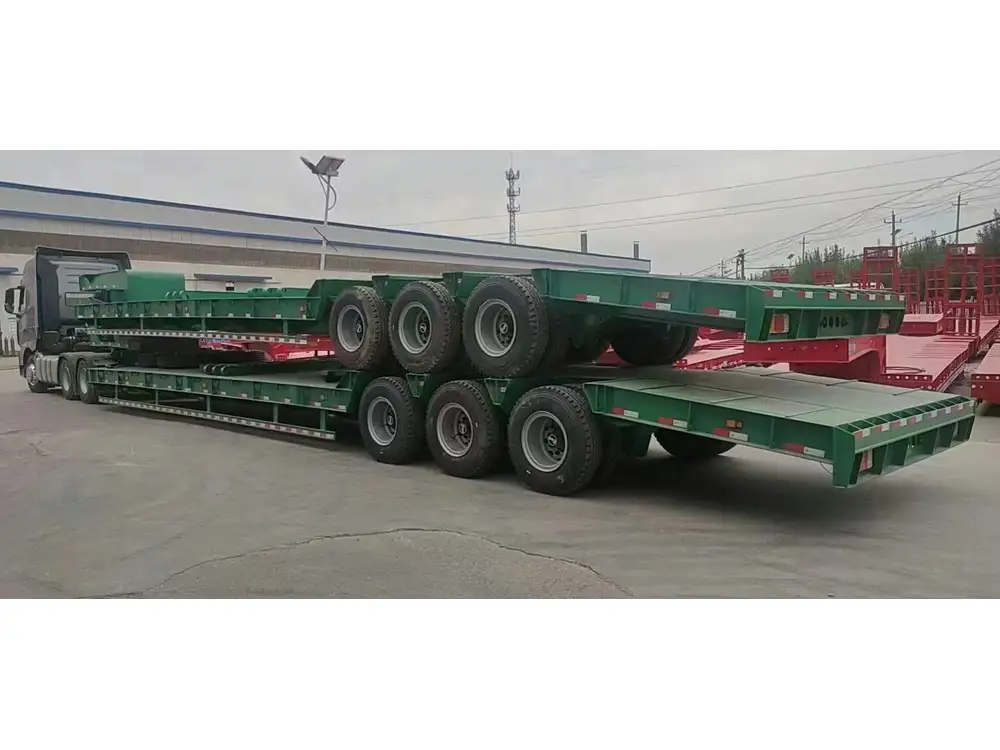
Lightweight Materials
Utilizing advanced alloys and composite materials, modern axles achieve higher strength-to-weight ratios, enhancing fuel efficiency and payload capacity without compromising durability.
Enhanced Suspension Systems
Integration of adaptive suspension systems that can automatically adjust to varying load conditions and terrains, offering unparalleled ride quality and stability.
Modular Designs
Innovative modular axle systems allow for easy customization and replacement of components, reducing maintenance time and costs.
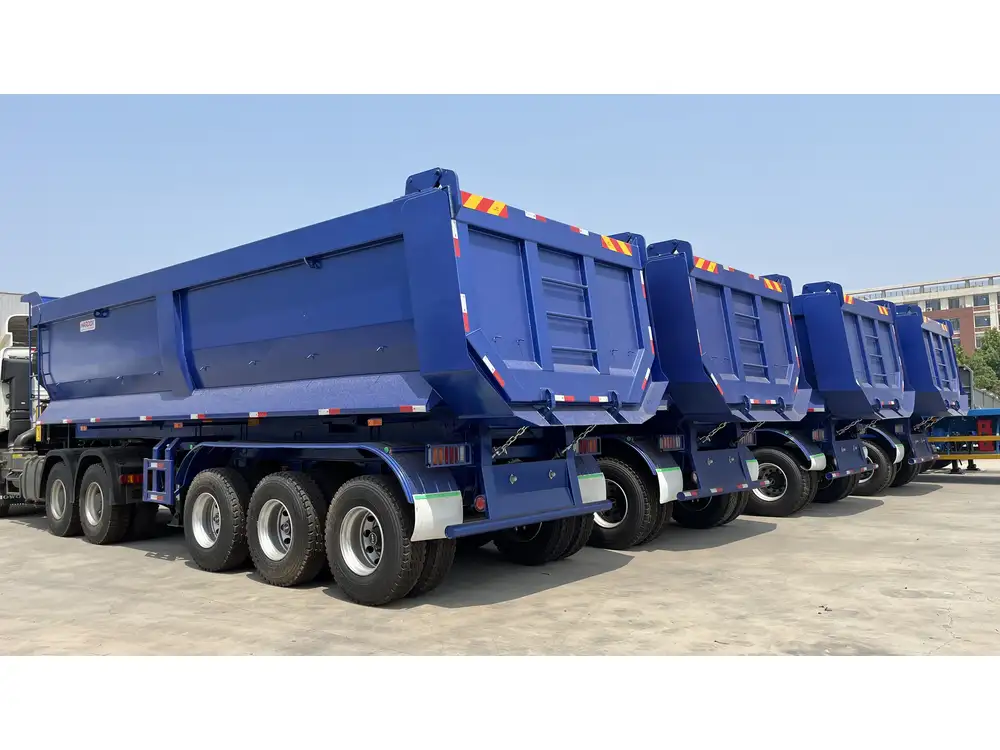
Eco-Friendly Manufacturing
Adoption of sustainable manufacturing processes and materials, reducing the environmental footprint of axle production while maintaining high performance standards.
At CarMax Vehicle, we stay at the forefront of these innovations, integrating the latest technologies into our axle designs to offer cutting-edge solutions to our clients.
Why Choose CarMax Vehicle for Your Trailer Axles
CarMax Vehicle stands as a beacon of quality and reliability in the trailer axle manufacturing sector. Here’s why partnering with us elevates your transportation operations:
Unmatched Quality
Our axles are engineered with precision, utilizing high-grade materials to ensure longevity and superior performance under diverse conditions.

Custom Solutions
We understand that each client has unique requirements. Our team collaborates closely with you to design and manufacture axles tailored to your specific needs.
Advanced Manufacturing
Leveraging state-of-the-art manufacturing technologies, we maintain stringent quality control processes, ensuring that every axle meets our exacting standards.
Comprehensive Support
From initial consultation to post-sale support, CarMax Vehicle provides comprehensive assistance, ensuring seamless integration and optimal performance of our axles within your fleet.

Competitive Pricing
We offer premium-quality axles at competitive prices, delivering exceptional value without compromising on performance or durability.
Sustainability Commitment
Our manufacturing practices emphasize sustainability, reducing environmental impact while delivering top-tier products.
Choosing CarMax Vehicle means investing in excellence, reliability, and innovation for your trailer axle needs.
Frequently Asked Questions

1. What factors should I consider when selecting a trailer axle?
When selecting a trailer axle, consider load capacity, terrain, maintenance requirements, budget, and specific customization needs to ensure optimal performance and longevity.
2. How often should trailer axles be inspected and maintained?
Regular inspections should be conducted monthly or after significant usage, with comprehensive maintenance checks performed semi-annually to identify and address potential issues promptly.
3. Can I upgrade my existing trailer with a different type of axle?
Yes, upgrading is possible. However, it requires ensuring compatibility with your trailer frame and may involve modifications. Consulting with a professional manufacturer like CarMax Vehicle is recommended for a seamless transition.

4. What are the signs that my trailer axle needs replacement?
Signs include excessive noise, visible damage or wear, uneven load distribution, difficulty in maneuvering, and signs of corrosion or structural deformities.
5. How do smart axles enhance trailer performance?
Smart axles provide real-time data on load distribution, stress levels, and environmental conditions, enabling proactive maintenance, optimizing load management, and enhancing overall safety and performance.
Partner with CarMax Vehicle to equip your trailers with the most reliable and innovative axle solutions, ensuring your transportation operations run smoothly and efficiently.



